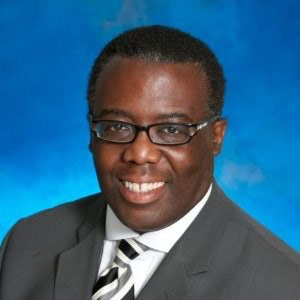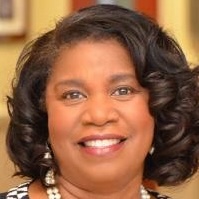Nelson Mandela once stated, “Education is the most powerful weapon we have to change the world.” One family that has taken that sentiment to heart is the Millet family.
Hailing from Trinidad and Tobago, the late patriarch of this family, Rev. Dr. Edmund Millet, came to the United States, in his words, “In search of truth and beauty.” Believing that higher education offered the holder of this gift, with a multitude of advantages which could serve to shape both one’s personal and professional life, from an early age he stressed the importance of education to members of his family. He also stressed the benefits that could be afforded by attending or working at a historically Black college or university.
An alumnus, and later dean of men at Wilberforce University in Ohio, Edmund Millet received his master of divinity degree from Princeton University and his doctor of ministry degree from Boston University. Throughout his life, Rev. Dr. Millet stressed the importance of higher education to all members of his family. His wife, Edna Millet received a bachelor’s degree from Wilberforce University and a master’s degree in education from the University of Michigan.
 Edmund and Edna’s older son, Peter Millet, received both his master’s degree and a Ph.D. in clinical psychology from Ohio State University. He has since served as dean of education at Tennessee State University, and provost and later president of Stillman College in Alabama. He is currently executive vice president/COO at Meharry Medical College in Nashville, where he is also professor and interim chair of psychiatry in the School of Medicine.
Edmund and Edna’s older son, Peter Millet, received both his master’s degree and a Ph.D. in clinical psychology from Ohio State University. He has since served as dean of education at Tennessee State University, and provost and later president of Stillman College in Alabama. He is currently executive vice president/COO at Meharry Medical College in Nashville, where he is also professor and interim chair of psychiatry in the School of Medicine.
 Peter’s wife, Marcia Millet, received her bachelor’s degree from Bennett College in Greensboro, North Carolina. She holds a master’s degree from Ohio State University and a doctorate in curriculum and instruction from Tennessee State University. She currently works as associate provost and chair of the department of education at Fisk University in Nashville. Previous work included serving as chair of the department of teaching and learning at Tennessee State University.
Peter’s wife, Marcia Millet, received her bachelor’s degree from Bennett College in Greensboro, North Carolina. She holds a master’s degree from Ohio State University and a doctorate in curriculum and instruction from Tennessee State University. She currently works as associate provost and chair of the department of education at Fisk University in Nashville. Previous work included serving as chair of the department of teaching and learning at Tennessee State University.

Edmund Millet’s daughter, Bronwen Millet, received her bachelor’s degree from Northern Michigan University. She holds a master’s degree and a Ph.D. in clinical psychology from Howard University. She works as a licensed clinical psychologist.
Edmund Millets’ younger son, Philip Millet, holds a master’s degree in business and information technology from Central Michigan University. He works for the Department of Defense.
The Millet family believes that a college degree opens the door to a wide range of possibilities and that there is no better way to start down the path of higher education than at an HBCU. A college degree fosters intellectual growth through exposure to diverse ideas, conversations, and disciplines. Having a college degree helps one to develop critical thinking skills which are essential for navigating complex problems, and also enables one to build a network of like-minded individuals who can become both lifelong friends and professional connections.
The HBCU experience, in addition to providing students with exposure to some of the top faculty and programs in the country, provides them with a nurturing and caring environment where they are encouraged to achieve their maximum potential. The Millet family also strongly believes that a degree is not intended to benefit just the recipient of the degree. Every degree has the potential to also create opportunities for others in one’s family, community, and the world itself. Stated differently, when one is handed a college diploma that individual is simultaneously being handed a debt to pay and a service to render.
Luke 12:48 tells us “To whom much is given, much shall be required.” In short, higher education equips students with the knowledge and skills needed to be successful in their chosen fields of study. A degree from an HBCU adds onto these qualities by also equipping students with the grit, disposition, confidence, and connections necessary for them to be successful in their endeavors and to become change agents in their communities and in the world. For the Millet family, higher education and the HBCU experience has enabled them to dream big, and as stated by Ellen Sirleaf Johnson, the first woman President of Liberia, “If your dreams don’t scare you, they aren’t big enough.
The Millets strive to live up to this mandate every day.


Absolutely wonderful educated family!